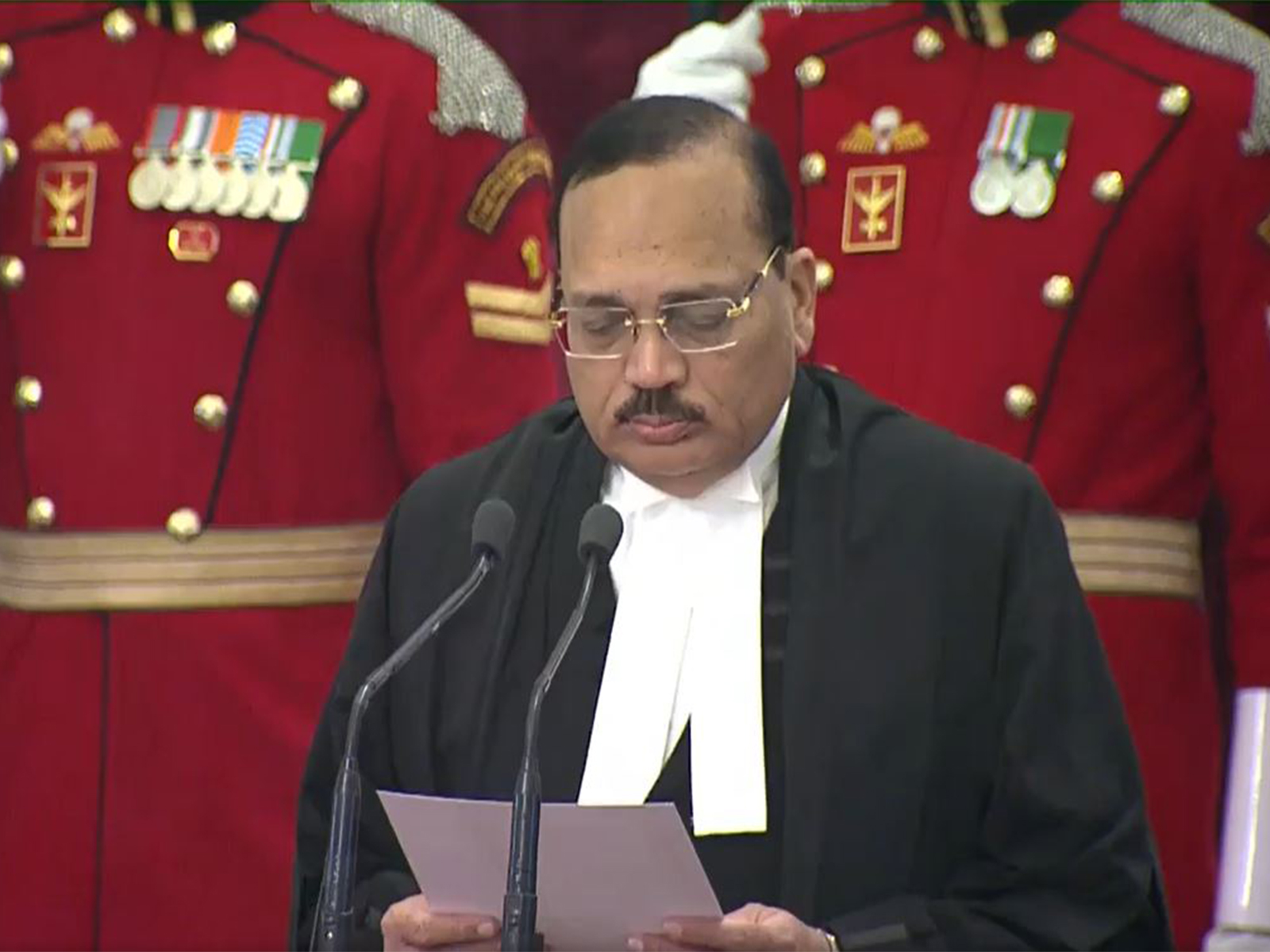New Delhi [India], November 24 (ANI): Justice Surya Kant took oath as the 53rd Chief Justice of India on Monday, succeeding Justice BR Gavai, and marking the beginning of his nearly 15th month tenure.
President Murmu administered the oath of office to Justice Surya Kant at the Rashtrapati Bhavan today.
Justice Kant was born on February 10, 1962 in Hisar, Haryana. He started practicing as a lawyer in the Hisar district court from 1984, and shifted to Chandigarh for practicing in Punjab and Haryana High Court in 1985.
Specialising in constitutional, service and civil matters, he has represented a number of universities, Boards, Corporations, Banks and also the High Court itself.
He was the youngest appointed Advocate General of Haryana in July 7, 2000 and designated as a Senior advocate in March of next year. He held the office of Advocate general till his elevation as a permanent judge to the Punjab and Haryana High Court on January 9, 2004. 15 years later, on May 24, 2019, Justice Surya Kant was elevated as a judge of the Supreme Court.
He has been a two-term member of the Governing Body of National Legal Services Authority, and is presently a member of various Committees of Indian Law Institute – a deemed university under the aegis of the Supreme Court.
He graduated from Government Post Graduate College in 1981, earned his bachelors in La in 1984 from Maharishi Dayanand University, Rohtak.
Justice Kant is looking focus on reducing the massive pendency of cases across the country during his tenure.
While addressing a group of legal journalists at his official residence in Delhi, ahead of taking charge as the Chief Justice of India (CJI), the Justice talked about his priorities before assuming charge of the highest judicial office of India.
He also described mediation, an alternative dispute resolution mechanism, as “a game changer” capable of providing faster, off-court settlements to litigants.
He said that arrears (pending cases) must be addressed both at the individual court level and on a Pan-India basis. He noted that he has already taken up this issue. One of the major challenges, he explained, is the overlapping of matters.
He said that “thousands of matters are kept in abeyance as they await decisions from these larger benches.”
As a result, High Courts and District Courts are also stuck due to multiple legal questions that remain unresolved, he stated.
He said that once these complexities are sorted out, the next steps can follow.
Notably, multiple chief justices of other countries, and multiple other foreign guests attended the oath taking ceremony of CJI Surya Kant, marking the biggest such delegation which has come to witness the swearing in ceremony of a CJI of India.
Dignitaries from Malaysia, Mauritius, Nepal, Bhutan, Kenya and Sri Lanka attended the ceremony.
From Sri Lanka, Chief Justice P Padman Surasena; his spouse Sepalika Surasena; and Supreme Court Justice S Thurairaja attended the oath taking.
From Nepal, Chief Justice Prakash Man Singh Raut; Supreme Court judge Sapana Pradhan Malla; his spouse Ashok Bahadur Malla; Nepal’s Minister of Law, Justice and Parliamentary Affairs Anil Kumar Sinha; and his spouse Ursila Sinha were present.
Chief Justice of Mauritius, Justice Bibi Rehana Mungly-Gulbul; and Rebecca Hanna Bibi Gulbul, daughter of Mauritius CJI were also among those present.
From Malaysia, Justice Tan Sri Datuk Nalini Pathmanathan of Malaysia’s Federal Court; and his spouse Pasupathy Sivapragasam are set to attend.
From Kenya, Chief Justice and Supreme Court President Martha Koome attended, along with SC judge Justice Susan Njoki Ndungu.
From Bhutan, Chief Justice Lyonpo Norbu Tshering and his spouse Lhaden Lotay were present.
Justice Surya Kant will serve a nearly 15-month long tenure, as he is set to retire on February 9, 2027. (ANI)
Disclaimer: This story is auto-generated from a syndicated feed of ANI; only the image & headline may have been reworked by News Services Division of World News Network Inc Ltd and Palghar News and Pune News and World News
HINDI, MARATHI, GUJARATI, TAMIL, TELUGU, BENGALI, KANNADA, ORIYA, PUNJABI, URDU, MALAYALAM
For more details and packages











